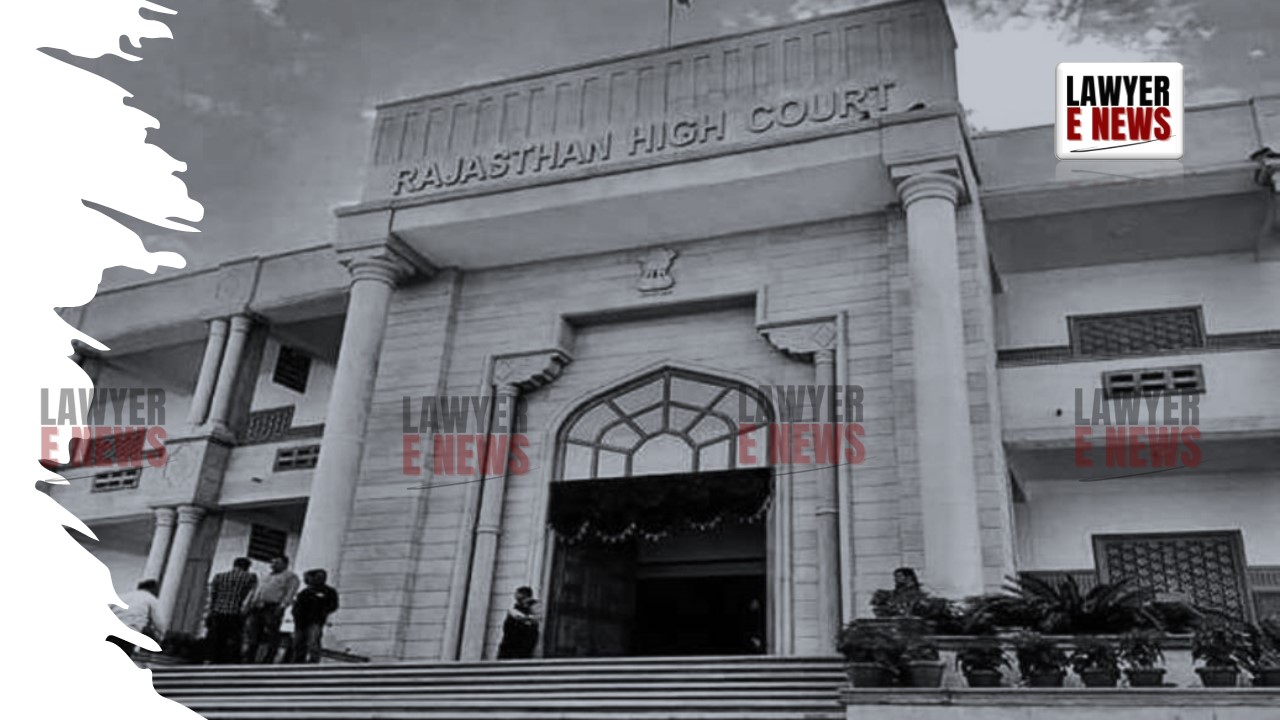-
by Admin
15 February 2026 5:35 AM



High Court emphasizes the limited scope of judicial review while upholding the Expert Committee’s decision on the disputed question in the Patwari recruitment examination.
The Rajasthan High Court has dismissed appeals challenging the correctness of the final answer key for a question in the Patwari recruitment examination, upholding the decision of the Expert Committee. The court underscored the limited scope of judicial review in such academic matters, emphasizing that courts should defer to the expertise of subject matter experts unless the key answer is demonstrably incorrect.
The Rajasthan Subordinate and Ministerial Service Selection Board issued an advertisement on January 17, 2020, for direct recruitment to the post of Patwari. The competitive written examination was held on October 23, 2021, followed by the release of a preliminary answer key, which invited objections from candidates. Based on the objections, the Expert Committee revised the answer key and published the final answer key on January 25, 2022. Dissatisfied candidates filed writ petitions challenging the revised answer key, focusing on the correctness of the answer to question 135 of Question Booklet Series-104C.
The High Court emphasized the critical role of the Expert Committee in resolving objections to the answer key. The committee, comprising subject matter experts, reviewed the objections and concluded that the correct answer to question 135 was “Gagron” instead of the initially proposed “Toda.” The court noted that the Expert Committee’s decision was based on authentic texts and historical references, which supported their conclusion.
Reiterating the principles laid down by the Supreme Court, the High Court observed that judicial review in academic matters is highly limited. The court stated, “Interference by the Court with regard to the correctness of the answer key would be permissible only if it is demonstrated very clearly, without any inferential process of reasoning or by a process of rationalization, that a material error has been committed.” The court further asserted that academic matters should be left to the expertise of academicians and that the courts should presume the correctness of the key answers.
The court extensively discussed the principles of evaluating answer keys in competitive examinations. It highlighted that unless the key answer is patently wrong, the courts should not engage in re-evaluation or scrutiny of the answer sheets. The court observed, “The publication of key answers is a step to achieve transparency and to give an opportunity to candidates to assess the correctness of their answers. An opportunity to file objections against the key answers is a step to achieve fairness and perfection in the process.”
Chief Justice Manindra Mohan Shrivastava remarked, “The decision taken by the Expert Committee is based on an authentic text, and it is not for the court to substitute its opinion for that of the experts. The judicial review should stop here.”
Conclusion: The Rajasthan High Court’s dismissal of the appeals reinforces the judiciary’s stance on the limited scope of judicial review in academic matters. By upholding the Expert Committee’s decision on the final answer key, the judgment affirms the importance of deferring to subject matter experts in resolving academic disputes. This ruling is expected to have significant implications for future cases involving competitive examinations, underscoring the deference courts must show to academic authorities.
Date of Decision: July 10, 2024
Mahendra Kumar Jat & Ors. Vs. State of Rajasthan & Ors.
